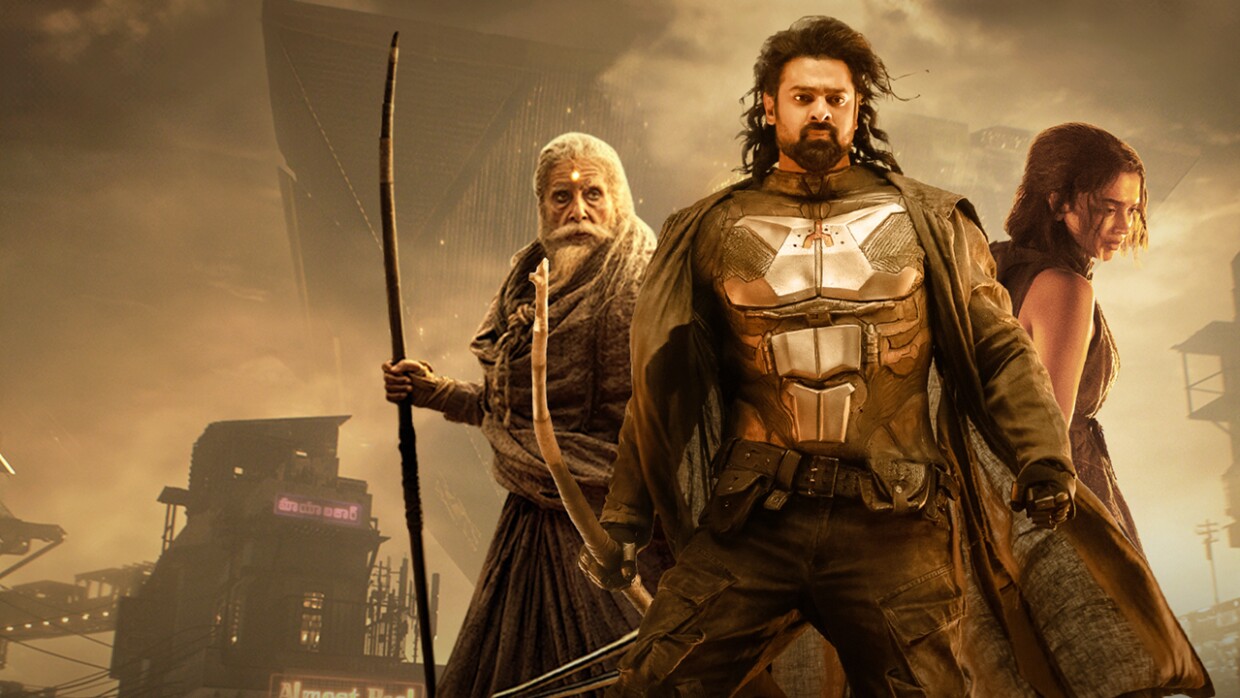Kalki 2898 AD – India’s Grand Mythological Sci‑Fi Spectacle and the Dawn of a New Cinematic Universe
Kalki 2898 AD, directed by Nag Ashwin and released in June 2024, is a groundbreaking Indian science-fiction epic that fuses Hindu mythology with dystopian futurism. Co-written by Ashwin and Rutham Samar, the Telugu-language film features an ensemble cast including Prabhas, Amitabh Bachchan, Kamal Haasan, Deepika Padukone, and Disha Patani in a saga set nearly six millennia after the events of the Mahabharata.
The story unfolds in the year 2898 AD, in a futuristic world where the last human city, Kasi, is ruled by an authoritarian regime led by Supreme Yaskin, portrayed by Kamal Haasan. The immortal Ashwatthama, played by Amitabh Bachchan, becomes the unlikely protector of Sumathi (Deepika Padukone), a pregnant woman believed to be carrying Kalki—the prophesied final avatar of Vishnu, destined to end darkness and restore balance. Prabhas plays Bhairava, a cynical bounty hunter whose life takes a dramatic turn as he becomes entangled in the fate of the unborn savior.

Visually, the film is a spectacular achievement in Indian cinema. With a massive production budget, it pushes the boundaries of visual effects and futuristic world-building. The depiction of Kasi—a dystopian, militarized, and technologically advanced city—is striking, blending traditional Indian aesthetics with global sci-fi influences. The film’s cinematography and set design create an immersive world that feels vast, decayed, and yet spiritually charged.
Thematically, Kalki 2898 AD explores the cyclical nature of time, destiny, and cosmic justice. It raises questions about individual purpose, divine will, and resistance in the face of oppression. The mythological undertones, particularly those referencing ancient Indian scriptures, are interwoven with speculative technology and philosophical reflections, offering a fresh and ambitious take on the superhero genre through a deeply Indian lens.

Critically, the film received a mixed yet largely positive reception. While some viewers found the first half slow and overly expository, the second half—featuring high-stakes confrontations, emotional revelations, and epic battles—was widely praised. The standout performances of Amitabh Bachchan and Prabhas added emotional depth and gravitas, and the film’s score and action sequences elevated the cinematic experience.
Commercially, Kalki 2898 AD became one of the highest-grossing Indian films of 2024, resonating not only in its Telugu-language release but also through dubbed versions across India and abroad. Its success signaled a growing appetite for Indian-made science fiction with global appeal.
Importantly, the film launches the “Kalki Cinematic Universe,” with a sequel already in development. Reports indicate that the second installment will further explore the origins and destiny of Kalki, while expanding the roles of key characters like Supreme Yaskin and Bhairava. Much of the sequel has reportedly been shot alongside the first film, setting the stage for a larger mythological narrative.
In summary, Kalki 2898 AD is a bold and visionary step for Indian cinema. Though not without flaws in pacing and tone, it delivers a mythic, futuristic saga unlike anything previously attempted on the subcontinent. As the beginning of a new cinematic universe, it marks both an end and a beginning—a bridge between ancient legends and a speculative future.
